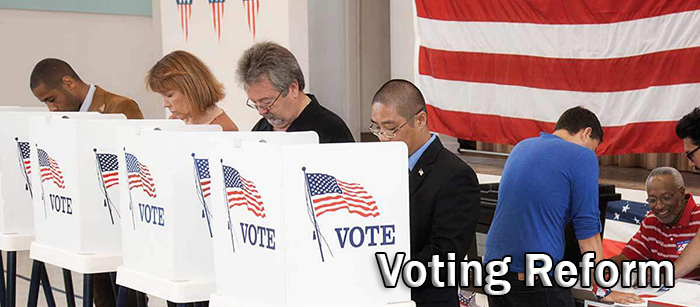
To increase bipartisanship, reduce polarization, and have more competitive elections, we need to change the way elections are run. This isn’t easy, because the two-party duopoly likes to control elections, and anything that reduces their power is a direct threat.
Fortunately, or unfortunately, the messes in the past two elections have created an environment in which people are becoming increasingly dissatisfied with the ways the two parties are controlling the game. In some states, like Arizona and Pennsylvania, election deniers won primaries and lost general elections. In some, like Georgia, hugely expensive run-offs dragged on for a month. In others, like Nevada, most winning candidates finished with under 50% of the vote, while in still others, like Oregon, both parties nominated extreme candidates; and, independents, the largest voting group, were shut out. In cities and municipalities, issues like crime, homelessness, and the lack of competitive elections have energized voters.
This has created an environment in which reform groups in state after state are making progress in changing election laws. Not all will succeed, but many will – and their success could change the political landscape.
In this and coming presentations, Reform Elections Now will focus on specific initiatives, introduce people who are their leaders, and identify those most likely to succeed. We believe some of these movements offer a real chance to change our political system in ways that will elect more moderates, increase bipartisanship, increase turnout, and reduce the impact of Big Money.
This week’s presentation will focus on Arizona, Virginia, Pennsylvania, and Connecticut.
Get our latest post and updates directly in your inbox
2020 Reform Elections Now | All Rights Reserved
Sign up and help Reform Elections Now champion solutions to the problems of hyper-partisanship and government dysfunction: